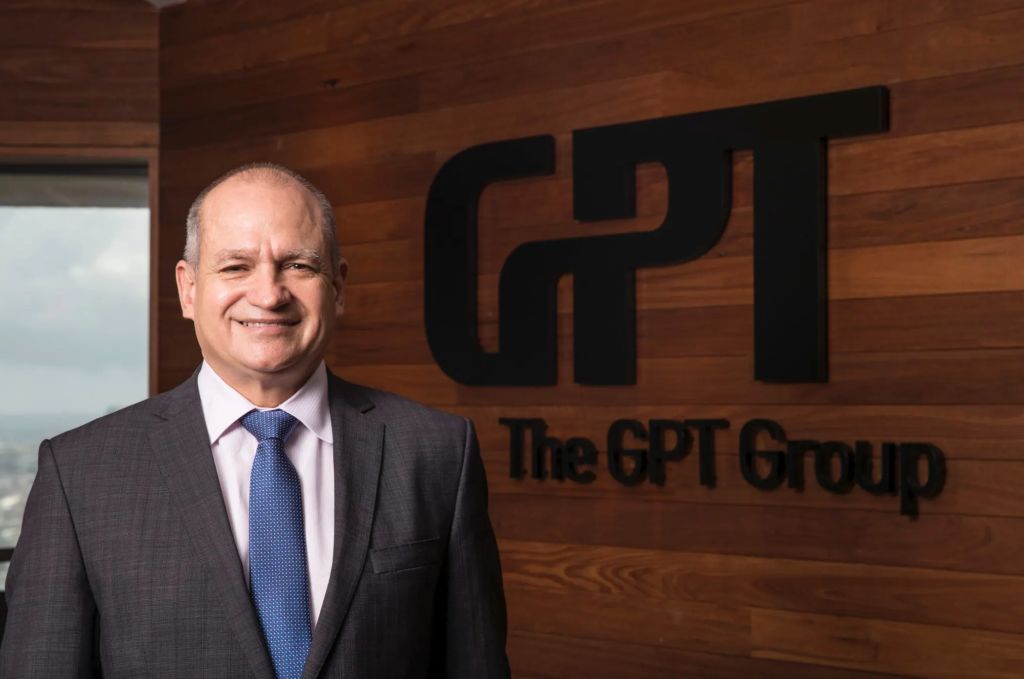Diversified property giant GPT has issued a higher earnings guidance to investors based on the booming industrial and logistics sector and a turnaround in its shopping centres, which had been hard hit by the COVID-19 pandemic.
A deal to manage UniSuper’s $2.8 billion direct real estate mandate and a large-scale $1.8 billion development program led GPT to report an 8 per cent jump in funds from operations – the more accurate measure of profitability for listed property groups – to $326.5 million for the six months to June 30.
GPT chief executive Bob Johnston said the better outlook, despite rising interest rates and inflation issues, had led him to forecast FFO earning per security of 32.4 cents, which is at the highest end of the group’s internal figures and ahead of most market analysts.
“The logistics sector is benefiting from ongoing structural tailwinds. Vacancy rates remain very low in the core markets nationwide, resulting in an expectation for further increases in market rents,” Johnston said.
“There has been a strong recovery in sales performance across GPT’s retail portfolio, buoyed by low unemployment and elevated levels of household savings.”
The ASX-listed GPT has a market value of $8.2 billion and is an owner and manager of $27.4 billion of diversified real estate assets, with a balance sheet portfolio valued at $16.4 billion.
Johnston said Melbourne Central, which had been hard hit by the pandemic, is benefiting from a return of students, tourists and the gradual rise in the number of CBD workers. A new Monopoly Dreams concept is opening in the centre.
But he did warn that rising interest rates will lead to some moderation in retail sales growth.
An interim distribution of 12.7 cents was declared and is payable on August 31. Johnston forecast a full-year payment of 25 cents. Investor reaction was swift, with the securities rising 5.7 per cent to $4.54.
Developments are under way at the group’s Rouse Hill precinct to include a further 10,000 square metres of retail space and 218 residential apartments. GPT is also a partner in the revamping of Cockle Bay’s office and retail area in Sydney’s Darling Harbour.
GPT’s fund management was also given a boost with the UniSuper portfolio, which it won after the super fund departed from AMP Capital. The property group has also focused on its sustainability program and aims to have the assets it manages carbon-neutral by 2024.
Johnston said while office vacancies were remaining elevated, the group was focused on offering a premium-space concept that was being leased quickly and at competitive rents. He said office space was still needed with more people leaving the home office for company and collaborating with colleagues.
Moody’s Investors Servicevice president Saranga Ranasinghe confirmed the results for the half year were in line with the rating expectations.
“Despite the uncertain economic environment driven by higher inflation and interest rates, all three of GPT’s business segments – office, retail and logistics – reported an improvement in funds from operations,” Ranasinghe said.
“GPT continues to benefit from the diversification and quality of its asset portfolio. The REIT has maintained strong office occupancy levels at around 92 per cent, despite the Sydney and Melbourne office markets facing vacancy levels that are well above the historical average.”
